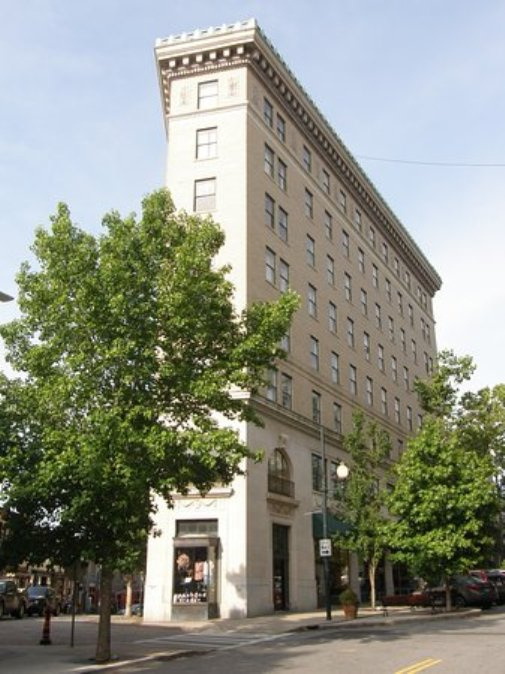If you give a mouse a cookie, he’ll want some milk to go with it — or so the children’s book goes. The same reasoning goes for hotel developers, warned Asheville City Council member Kim Roney during a debate over Asheville’s new lodging development guidelines: Once standards are set, the floodgates open for developers to seek ever-weaker restrictions.
Roney’s argument didn’t sway her colleagues on City Council, who voted 6-1 to adopt the new development guidelines at their Feb. 23 meeting. The move marked an end to the city’s 17-month hotel moratorium and years of public engagement and discussion.
A second 6-1 vote established a new Hotel Overlay zoning district, limiting the geographic location of new lodging development by right to the outskirts of downtown, Biltmore Village and the River Arts District. Roney was the only Council member to oppose both actions.
The new regulations allow hotels with 115 rooms or fewer to avoid a Council vote if they meet a series of design requirements, are located in the overlay district and contribute to equity-related public benefits.
The approved public benefits table requires developers to score 100-220 points depending on their project’s size and location. At least half of those points must come from a donation to the city’s Housing Trust Fund or Reparations Fund or the construction of permanently affordable housing for residents making 80% or less of the area median income.
A new 100-room hotel in downtown Asheville would thus need to contribute at least $400,000 to the reparations or housing fund or build 10 affordable housing units, explained Todd Okolichany, the city’s director of planning and urban design. The remainder of a project’s required points could come from a broader menu of options, including B Corporation certification (120 points), offering a living wage (60 points) or contracting with minority- or women-owned businesses (10 points).
Roney suggested that the point requirements were too low and moved to double the minimums. Although Vice Mayor Sheneika Smith backed her motion, the remaining five Council members voted against it.
Such strong requirements would discourage developers from opting in to the process, argued Council member Gwen Wisler. She noted that Council could not legally require developers to make contributions to equity projects or other city goals outside of the new permitting approach. If Council set the bar too high, she continued, developers would likely seek conditional zoning approval, the same process used since 2017.
The new hotel guidelines also formally establish the reparations fund, which Council first supported in July, to address harms against Asheville’s Black population, noted member Antanette Mosley. Earlier in the meeting, City Manager Debra Campbell shared a timeline for creating a reparations commission to begin crafting short-, medium- and long-term strategies to address disparities and create generational wealth.
Council will review the new lodging requirements in six months. Before that happens, Smith asked staff to present a demonstration of what the process looks like from project submission to final approval. Roney also requested that Council’s Planning and Economic Development committee review the process on a quarterly basis.




So which Hotel is first in line to test the apparatus ?
“She noted that Council could not legally require developers to make contributions to equity projects or other city goals outside of the new permitting approach. ”
Waaait, does that mean their whole “woke” point system for these hotels is entirely voluntary? That’s some silly stuff if they think capitalists are going to give up their money if they don’t have to…that just simply wouldn’t be a good business decision, everything else aside.
But why could the council not just impose such a “fee” on new development. And then pass a budget that allocates the collected fees to whatever reparations or affordable housing they want? I think some need to bypass state law is behind this apparent extortion.
Guess it’s not extortion when the government is the one doing it.
YES IT IS…it’s government THEFT…pure EVIL…democrackkks thrive on EVIL.
My Buncombe Co property just outside the city limits pops in value with each vote. Keep it up. You get the traffic and the cost, the county gets the property tax and I get richer. Woooooooooo!
Back before 1984 in “old speak” a “required donation” was also known as a “tax” or a “fee”. I wonder why the council avoided calling a fee a “fee”.